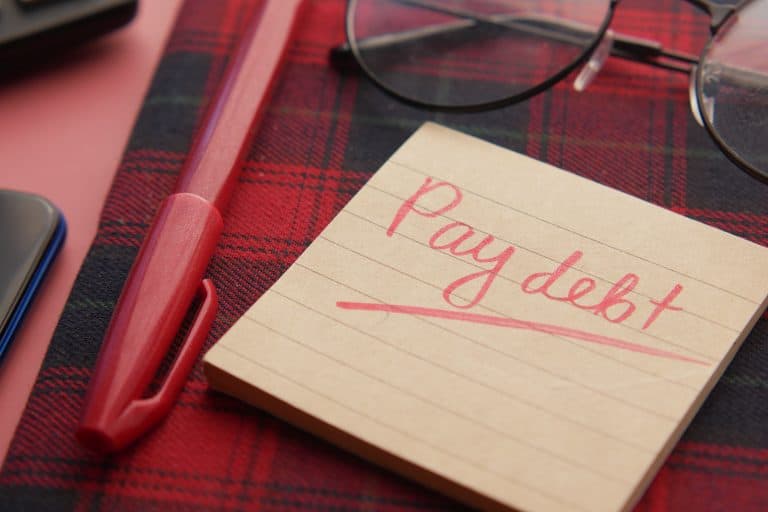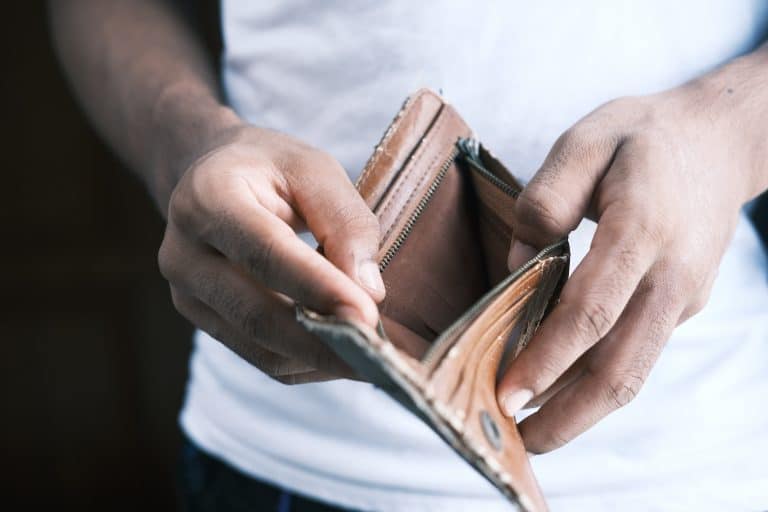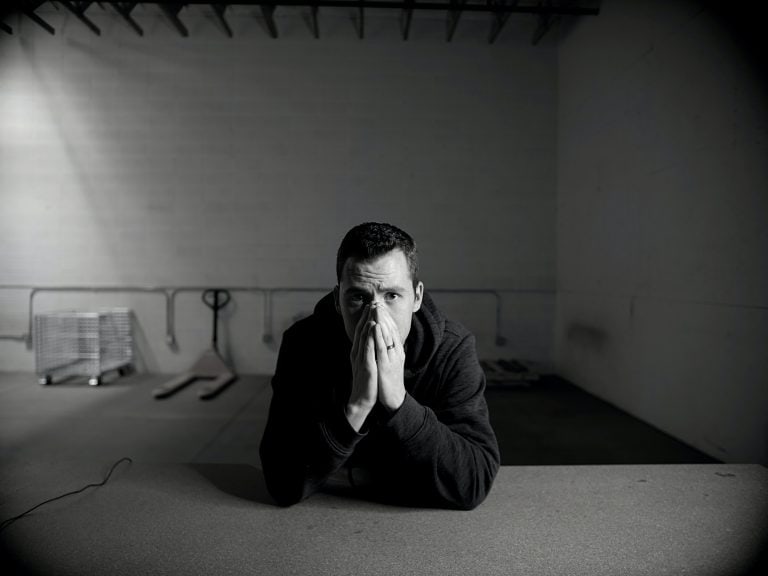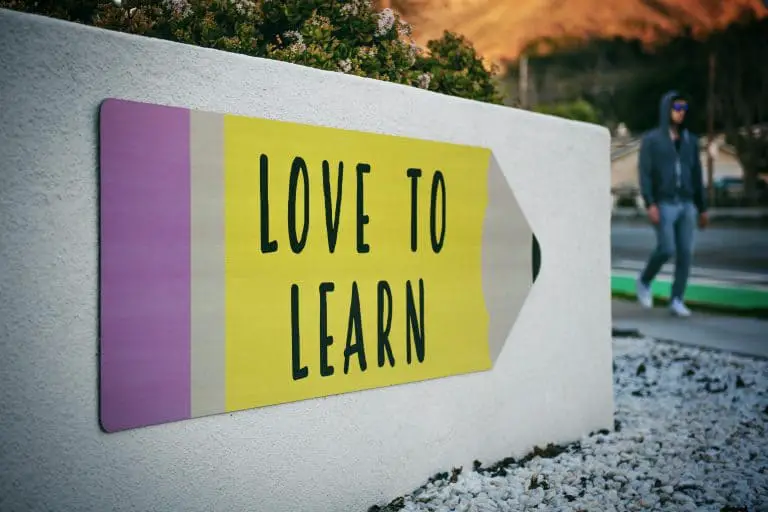How to Get Out of Debt with No Money and Bad Credit (key actions)
Debt can be a very frustrating and overwhelming experience.
If you’re struggling to get out of debt, don’t worry – you’re not alone.
Thankfully, there are steps you can take to start getting yourself back on track.
One key step is to develop a plan.
Without a plan or strategy, it’s easy to become overwhelmed and give up.
The sooner you start developing a plan, the easier it will be to get out of debt. The first step is getting educated on your options and what they entail.
After that, make sure to stay disciplined with your spending habits so you can pay off debts as quickly as possible!
So, what’s the best way to get started? Read on for tips on how to get out of debt with no money and bad credit.

What is debt, and how does it affect your life
In a sense, your debt is an indicator of your choices. Good and bad.
Debt is often a necessary part of life.
It can help you make purchases beyond most people’s reach, like a home or car.
But it can also help you buy the stuff you don’t really need and can’t really afford.
Today’s culture of buy now and pay later, constant comparison on social media, and easy credit makes taking on debt just another thing.
Mortgages, credit cards, store cards, student debt, payday loans and car finance are all but a few of the ways we can get into more and more debt.
We are surrounded by endless media telling us we need things and don’t worry, if you can’t pay, you can get credit for that!
The trap is set, and we are moths to that flame.
It can be difficult to get out of if you find yourself in debt beyond your means.
You may feel like you’re stuck in a never-ending cycle of payments and bills, as trying to live with debt is like trying to swim with eights in your pockets.
Debt problems can lead to stress, anxiety, poor sleep, health, and damaged relationships.
Good and bad debt
You may have heard the terms good and bad debt and wondered what the difference considering they are both debts!
Good debt is debt taken out against assets that will likely increase in value
- Houses
- Businesses
- Educational debt (improving yourself)
All of these have the potential to increase in value and provide you with a rising income over time.
Bad debt, on the other hand, is the opposite. This is debt spent on anything that loses value over time.
- A car
- Electronics
- Furniture
That brand new car you bought the second you drove it off the car lot lost 20% of its value and continues to lose its value every year.
How to get out of debt even if you have no money or bad credit
Debt can be a huge burden, especially if you don’t have the money to pay it off.
And if you have bad credit, it can be even harder to find a way out.
But it’s not impossible. Here are some tips for getting out of debt even if you have no money or bad credit.
- The first thing is to stop digging the whole
Stop taking on any more debt. Cut up the credit cards end all your subscriptions and alerts to stuff you don’t need. Become laser-focused on getting out of the debt.
Gather your financial numbers and work out your net worth, everything you own minus what you owe.
Now you have your baseline – where you are starting from – start lifting your way out of the red and into the black.
- Make a plan for what you want the future to look like
Be very clear about what good looks like for you.
- What are you doing, where are you going, who are you with.
- What does it look and feel like?
Maybe it sounds a bit woo woo, but be clear on what you want a debt-free vision.
Now you know what you want to work towards and move away from.
When you have a difficult decision to make about money, ask yourself is this helping me towards or away from what I really want?
3. Make a budget and stick to it.
If you want to get out of debt, you need to create a budget and stick to it.
Figure out how much money you have coming in and going out each month and try to make sure your expenses are less than your income.
This may be difficult at first, but it’s important to make a concerted effort to get your spending under control
4. Cut back on your expenses as much as possible.
A good way to start is to cut back on your expenses as much as possible. You may need to downsize your home and sell many of your own things.
If you rarely use something, don’t keep it. Instead, get rid of it and make a little money in the process.
5. Refinance your home or car to get a lower interest rate.
If you have a high-interest rate on your debt, consider refinancing your home or car in order to get a better interest rate.
This will save you money in the long run and help you pay off your debts faster. You can check out this link for
6. Pay more than the minimum each month.
After creating your budget, make it a point to pay off as much of your debt as you can every month. Try to pay double or triple the required monthly payment on each bill.
This will help you pay off debt much faster and save a lot of money in interest payments.
7. Negotiate with your creditors to get lower interest rates or payment plans.
If you’re completely out of options and just can’t seem to get your bills paid off, you may want to sit down with your creditors and try to work something out.
Many creditors are willing to negotiate payment plans, lower interest rates or even waive fees if they know you’re in trouble.
8. Seek professional help
If you’re struggling to get out of debt on your own, you may need to seek out professional help.
Consolidating your debts can be an option, but best to seek advice before taking action.
Some places where you can debt advice in the UK is Step change and CAP
10 ways to increase your income
There are many different ways to increase your income, and some are easier than others. If you’re looking for a way to make more money, here are a few ideas to get you started:
1. Ask for a raise at your job.
If you feel like you’re not making enough money, talk to your boss about getting a raise.
Be prepared to make a case for why you deserve one, and be sure to have suggestions for how you could improve your productivity or contribute more to the company.
2. Start a side hustle.
If you’re looking for a way to make more money outside of your job, start a side hustle.
There are many different ways to make extra money, so find something that interests you and start doing it.
You can ask around for odd jobs, babysit, tutor, become a consultant or freelance writer; the possibilities are endless!
3. Sell stuff on Craigslist or eBay.
If you have stuff around your house that you don’t use anymore, try selling it on sites like Craigslist or eBay to make some cash.
You can sell old DVDs, books, electronics and more to make some quick money on the side.
4. Get a second job.
If you don’t think a side hustle would work for you or if you just want another source of income altogether, getting a second job is an option too.
You can find part-time or weekend jobs at restaurants, retail stores, or even local offices.
5. Automate your savings.
If you want to increase your savings but aren’t willing to work more hours or pick up a side hustle, the best thing you can do is automate your savings.
Set up an automatic transfer from your checking to your savings account and forget about it!
You’ll never even see the money, and not having it will force you to focus on finding another way to make it.
6. Apply for a higher-paying job.
If you’re not making decent money at your current position but want to make more, think about applying for a higher-paying job in your industry.
Moving up the career ladder can mean less time at work and more opportunity for growth, which means bigger pay.
7. Do freelance work.
If you have a particular skill, marketability or knowledge about an industry, try doing freelance work in your spare time to make extra money.
You can find opportunities on sites like Craigslist or Upwork; all you need is a computer and internet connection!
8. Have an “everything must go!” yard sale.
If you’re looking for a more traditional way to make money, you can have a yard or car boot sale. Put out whatever you don’t want anymore and see how much cash you can make by selling it to someone else.
9. Participate in focus groups and surveys.
Finally, if you’re open to trying new things or taking some market research surveys, try signing up on survey sites to earn some rewards. There are many different opportunities to make extra money by taking part in focus groups and surveys, which you can find on sites like Survey Junkie and Swagbucks.
- Use cashback websites
When it comes time to renew your tv or utilities or just buy things online, you can use cashback websites that will pay you a commission for using them. You are likely only to get a small amount of money back, but every little helps.
5 Tips for spending less
There are a few ways that you can start to spend less money.
One way is to create a budget and stick to it. When you know how much money you have to work with each month, it’s easier to decide what you can and can’t afford.
Conscious spending is a great way to get started. If you go shopping, don’t take your card with you unless you have the cash to go with it
Using the kakeibo method is a great way to save money. Every time you spend some money, write it down in a book and then go over all those expenses at the end of the month and try to figure out where your money went.
If you can find areas you need to cut back on, do it!
Another way to save money is by comparison shopping. Compare prices at different stores before making a purchase and see if any coupons or discounts are available.
You can also save money by cooking at home instead of eating out and buying used items instead of new ones.
Finally, try to live a minimalist lifestyle and only buy the things you need. When you’re not spending money on unnecessary things, you’ll have more leftover to put towards your debt.
2 Strategies for paying off debts as quickly as possible
When it comes to paying off your debts, you can use a few different strategies. Here are six of the most effective ones:
Snowball method: This method is great for people who are motivated by quick results. With the snowball method, you pay off your debts from smallest to largest regardless of interest rates.
The emotional boost of seeing success early will motivate you to stay on track and continue paying off your debt until it’s gone.
Avalanche method: This is another great option for people who are motivated by quick results. With this method, you first pay off your debts with the highest interest rates.
As soon as one debt is paid off, you take its payment to pay off another high-interest debt which you should be able to see quick results
Both of these methods require a laser focus to pay off and keep paying off as much debt as you can.
The importance of staying disciplined with your spending habits
The importance of staying disciplined with your spending habits cannot be overstated.
If you are in debt, the best way to get out of it is to start by cutting back on your spending.
This may be difficult, but it is necessary if you want to get your finances back on track.
There are a number of ways to stay disciplined with your spending. One is to create a budget and stick to it.
Another is to make a list of all your expenses and track where your money is going. This can help you identify areas where you can cut back.
It is also important to resist the temptation to buy things you don’t need. Instead, focus on paying off your debts and building up your savings.
Debt is a serious issue that can be difficult to manage. The good news, though, is that there are many strategies you can employ to get out of debt and start saving money for the future.
You may not have any extra cash on hand, or your credit score might be too low for another loan – but that doesn’t mean you don’t deserve some relief from mounting financial pressure.
Conclusion: how to get out of debt with no money and bad credit
Debt can be a very heavy burden to carry, and it can feel impossible to get out from under it.
However, you can become debt-free with some hard work and dedication, even if you have no money or bad credit.
These tips for getting out of debt will help set you on the path to financial freedom.
Stay disciplined with your spending habits, increase your income, and pay off your debts as quickly as possible, and you will be well on your way to a brighter financial future.
Debt is a hard thing to deal with. However, you can become debt-free with some hard work and dedication, even if you have no money or bad credit.
These tips for getting out of debt will help set you on the path to financial freedom.
Congratulations on making it to the end of our detailed guide on getting out of debt.
We know that this information can feel overwhelming, but we want you to remember that you are not alone.
Millions of people worldwide are in similar situations and have found a way to overcome their struggles, and you can too.
If you take one step at a time and follow the advice in this post, you will be well on your way to becoming debt-free.
Remember, it is important to stay disciplined with your spending habits if you want to achieve success.
Make sure to set goals for yourself and track your progress so that you can celebrate each accomplishment along the way!
Are there any other questions that we can help answer about getting out of debt?
Click the below link to learn more about our support for building a life of debt and financial freedom.






